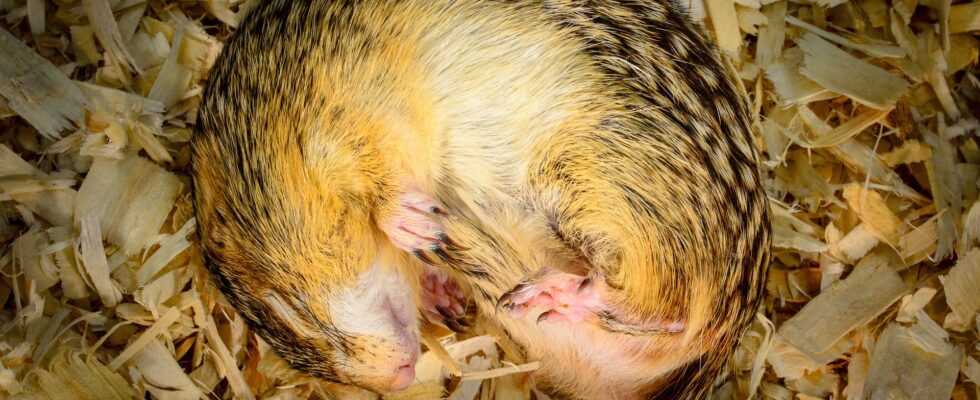To survive the winter, thirteen-striped squirrels go into a long sleep. They shut down their bodily functions for around six months, only to leave their underground burrow in the spring again in top form. Researchers have reported in the journal Science how they stay strong during the long fasting period. Therefore owe Ictidomys tridecemlineatus their survival hard-working gut microbes.
In many mammals, prolonged periods of inactivity and starvation cause the body to lose strength. If you don’t move or eat for a long time, you lose muscle mass. This produces ammonium, which in turn becomes urea. However, this substance is toxic in high concentrations, which is why it is usually excreted in the urine. The result: the body loses nitrogen, which it actually urgently needs. It is all the more impressive that hibernators like the thirteen-striped squirrels wake up remarkably strongly from months of torpor. How it works?
Ureolytic intestinal microbes make it possible. They incorporate the urea nitrogen into metabolites, writes the team led by animal physiologist Matthew Regan in their current study, and the urea produced during protein breakdown is transported from the blood to the intestine and excreted in the urine.
According to Regan’s group, the recycling of urea-nitrogen is greatest after prolonged fasting in late winter. “These results reveal a functional role for the gut microbiome during hibernation and suggest mechanisms by which urea nitrogen recycling contributes to protein balance,” the researchers write.
